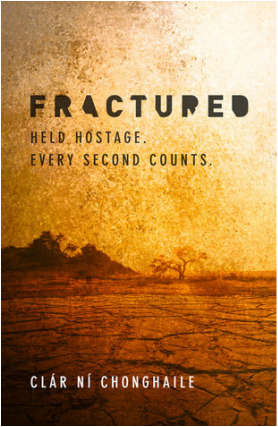
Outside, the air remoulded our features, sheening them with sweat as the wind cheekily tugged at the scarves the women on my flight had hastily pulled over their hair
and when the teenager, Abdi, realises he feels an affinity for Peter because his world is not reduced to black and white (p176):
I would like to always live in the grey, in a world where there are no absolutes, nothing to fight for, nothing to kill for, nothing to preach for.
I also liked his mother’s reflections on how the story of Peter’s kidnap is not considered sufficiently juicy (p188):
he didn’t give good story. A single man, to all intents and purposes, held for only a few weeks, a journalist rather than an unfortunate civilian. He lived, and so his past remained buried
reminding me of my own short story about a kidnapped journalist, Habeas Corpus. (See also another novel about kidnap in a lawless country, An Untamed State.)
But, overall, I found this novel overly information heavy, so that it dragged in places. The story is certainly important, and Clár Ní Chonghaile, a journalist who has covered the African Union’s battle against Al-Shabaab seems well qualified to tell it, but I felt Peter’s challenge in making the war interesting was one that also applied to the author. I also found the structure a little strange: we move between Peter’s, his mother’s and Abdi’s points of view in the main, but the Somali’s voice disappears around halfway through (although we do hear from him indirectly via the other two).
What makes journalists risk their lives to bring us these stories we don’t really want to hear is a fascinating subject, as is what it means to “bear witness to … suffering” (p129) as Peter maintains. I’d be interested if Clár Ní Chonghaile chose to write a quieter novel focusing on that next. Thanks Legend Press for my proof copy.
I read Fractured a little in advance of publication day on 1st February, but held back with my review because no-one wants a moany appraisal to intrude upon their publication party. But the latest Carrot Ranch Flash Fiction Challenge on the question of “What good is power?” brought me back to a novel that has a lot to say about power and fear, from the African warlords to the journalists and their editors who select how the stories of the disadvantaged are portrayed to the wider world. The dynamics of power can make for some engaging fiction, from the fathers whose wealth and historical authority enable them to control where a son expresses his sexuality or how and where his children play to the stranger who rewrites history, and more. I’ve encountered a few abuses of power in my series on fictional therapists and in novels with an institutional setting. Along with my recent reminiscences on social psychology experiments, it’s the latter that forms the basis of my flash, hoping this might help kickstart the second draft of my WINMP (Work In Not Much Progress). If you’re not familiar with Rosenhan’s pseudo-patient experiment, Wikipedia will help you out.
“Anything else? Do they threaten to harm you? Command you to do things you don’t want to do?”
You shake your head. “Just those three words – empty, hollow, thud.”
The psychiatrist pushes his glasses up his nose. “Better have you in for observation.”
You don’t protest, expecting they’ll evict you as a fraud before bedtime. But the days drag on, the dull routine of meals, meds and a movie on TV. How do the really sick survive?
You scribble away, observing the staff as they observe you. But their notes are the clinical record; yours dismissed as “writing behaviour”.





















 RSS Feed
RSS Feed





















